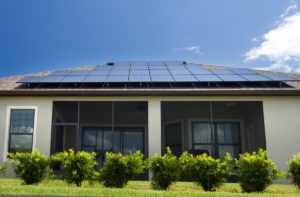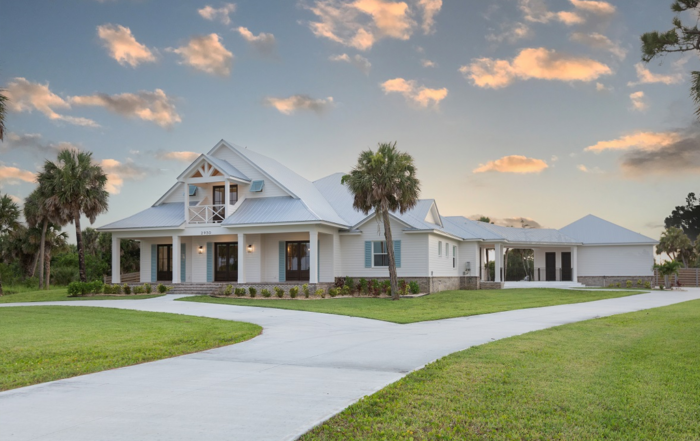
The popularity of sustainable and solar home building is on the rise. People are looking for ways to reduce their environmental impact, and solar homes offer a great way to do that. Solar homes also offer other benefits, such as reducing energy costs and helping to stabilize utility rates.
Solar Panels 101
Solar panels are devices that convert sunlight into electricity. They are made up of solar cells, which are made of silicon. When the sun’s rays hit the solar cell, they knock electrons loose from the atoms in the silicon. This process is called the photovoltaic effect. The loose electrons flow through the solar cell to metal contacts on the sides of the cell. This flow creates an electric current.
There are two main types of solar panels: monocrystalline and polycrystalline. Monocrystalline panels are made of a single crystal of silicon, while polycrystalline panels are made of many smaller silicon crystals. Monocrystalline panels are more efficient than polycrystalline panels, but they are also more expensive.
The current flows through wires to an inverter, converting the direct current (DC) into alternating current (AC). AC is the kind of electricity that powers homes and businesses. The electricity flows into your home’s electrical panel and from there to outlets throughout your home.
Microinverters Are Clean and Easy
Microinverters are an inverter that converts direct current (DC) into alternating current (AC). They are used in solar systems and have certain advantages over traditional central inverters.
Microinverters are typically small, lightweight, and easy to install. They can be mounted directly on the solar module and do not require long AC cables.
Microinverters also allow each solar module to operate independently. This maximizes energy production because modules can produce electricity even when shading or soiling reduces output from other modules in the system. In addition, microinverters improve power quality by generating clean AC power with very low harmonic distortion.
Finally, microinverters are more reliable than central inverters because there are fewer components and no single point of failure. This increases system uptime and reduces maintenance costs.
New Technology is Changing the Game
New solar technology is changing the game by making it more efficient and affordable. Solar panels are becoming more efficient at converting sunlight into electricity, and the cost of solar panels has dropped significantly in recent years. As a result, solar power is becoming increasingly popular as a renewable energy source.
There are several new solar technologies that are helping to improve the efficiency and affordability of solar power. For example, thin-film solar cells are made from thinner and lighter materials than traditional silicon-based solar cells, making them less expensive to produce. Additionally, these cells are more flexible and can be installed on a broader range of surfaces.
Another new technology is “concentrator” solar cells, which use lenses or mirrors to concentrate sunlight onto a small area of photovoltaic material. This increase in the amount of sunlight that hits the cell helps to improve its efficiency.
As solar costs continue to decline and technology improves, solar power is likely to play an increasingly important role in the world’s energy mix.
The Benefits of Building a Solar-Powered Home
The environmental benefits of solar energy are undeniable. Solar power is a clean and renewable resource that can help to reduce our reliance on fossil fuels, and it’s an excellent way to save money on your energy bills.
As Earth Day is this month, let’s go through some specific benefits of building a LifeStyle SunSmart and adding a solar system to your LifeStyle home.
- Save money on your energy bills. One of the most significant advantages of solar power is that it can help you save money on your energy bills. Solar panels convert sunlight into electricity, which you can use to power your home.
- Increase the value of your home. Another great benefit of solar power is that it can increase the value of your home. Homes with solar panels tend to sell for more than homes without them, so installing solar panels could be a wise investment if you’re thinking about selling your home in the future.
- Help the environment. Of course, one of the best things about solar power is that it’s good for the environment. Solar energy is a clean and renewable resource, so it doesn’t produce any pollution or greenhouse gases. This means that using solar power can help reduce your carbon footprint and positively impact the planet.
If you’re interested in sustainable and/or solar home building, contact LifeStyle Homes today to learn more about our homes of the future.




